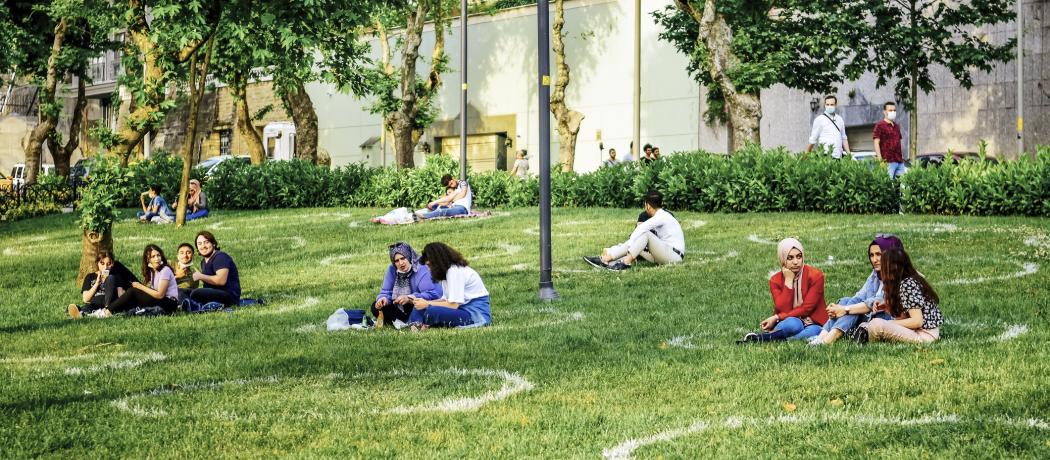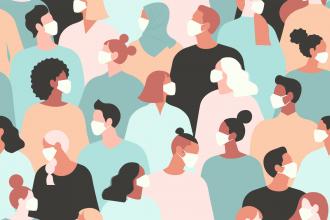I am a hugger, so the physical distancing rules that have been in place during the past months put a cramp on my usual interpersonal behavior. The phenomenon of physically staying away from one’s friends and loved ones—a smile hidden under a mask, no handshakes, and certainly no hugs—has bothered me in various ways and, I am sure, many people have been similarly affected. Do I stand my ground or step back a few feet when my best friend approaches me without a mask on his face? My best friend! What is wrong with him! He might be giving me his bugs!
To study how we’ve changed our behaviors toward one another and what changes we’ve made to our daily lives could be a ball for phenomenologists, and their findings may be of great importance to our eventual recovery from the prolonged disruption to our personal and social lives.
Explorers of phenomenology, like Jean-Paul Sartre (1903–1980), the Nobel Prize winner in literature in 1964, recognized how interactions with other people shape our feelings and actions in a variety of ways, including how we anticipate the future. The territory of phenomenology is limitless: studies extend to many aspects of human experiences that are so deeply rooted in our lives that we don’t even think about them.
Now three researchers, Havi Carel, Matthew Ratcliffe, and Tom Froese, from the University of Bristol, the University of York, and the Okinawa Institute of Science and Technology, have started an international collaboration with a number of scientists to study the effects of physical distancing and the impacts of the pandemic in general. They are planning to compile an in-depth collection of personal accounts through interviews and surveys from participants worldwide, on two themes.
The first theme focuses on face-to-face relations with others. How are our feelings, thoughts, and activities shaped by our interactions with other people? What does a smile or a glare mean as a passerby hurriedly crosses the street when about to walk past us? How have lockdowns affected us? Have friendships been rekindled, pastimes rediscovered, families brought together? How about the expressions of gratitude and solidarity toward caregivers?
The second theme focuses more on the context within which we find ourselves—roads closed, parks closed, coffee shops closed. Our habitual life patterns have changed. Is there a sense of not knowing what to do? Do we trust the air we breathe, the surfaces we touch? Is there a pervasive sense of uncertainty about one’s own body? Is this a significant cough? Have I washed my hands enough? How have our habits changed? Is the loss of norms disorienting or dispiriting?
There are numerous other questions given the concerns over mental health implications—perhaps the effects of disruption to social life requires the most urgent attention.
This proposed global study may assist us during our hoped-for transition toward our usual life and may add to our appreciation of what we used to take for granted: living with others in a shared world.
—George Szasz, CM, MD
Suggested reading
Carel C, Ratcliffe M, Froese T. Reflecting on experiences with social distancing. Lancet 2020;396:87-88.
This post has not been peer reviewed by the BCMJ Editorial Board.


